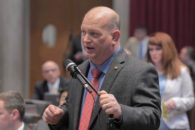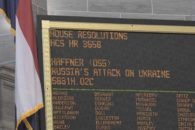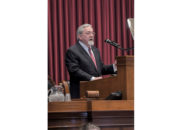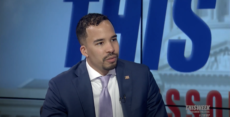JEFFERSON CITY, Mo. — Lincoln University took another step toward hosting the country’s first police academy at a historically Black college or university (HBCU) this week.
Missouri’s Peace Officer Standards and Training (POST) Commission recommended the university’s academy be granted a license during this week’s meeting. Lincoln University Police Chief Gary Hill, who was appointed to the commission earlier this year and recused himself from all votes on the academy, said commissioners voted to approve the academy after staff from the Department of Public Safety (DPS) conducted site visits over the past two months.
“DPS came out, and they did what they call a site survey, essentially making sure we’re working with a real police academy, that everything is safe and functional,” Hill told The Missouri Times. “We have just about everything in place at this point, and we’re in the process of creating our test bank for the curriculum they will have to learn to make it through. But as far as having instructors and the facility, we’re ready to go with that.”
Hill said the university hoped to instruct eight to 10 recruits over its first year. Fourteen hopefuls have applied for the academy so far, Hill said, including students and three working adults. Background checks on the applicants are underway.
“I’ll be handling the working adult side of the program, instructing people who aren’t trying to get a degree but just want to go through the police academy,” he said. “We’re doing both sides of it — the students and working adults — to get people certified as peace officers by the state of Missouri. Our facility is going to be very modern with a lot of electronics and room for expansion.”
The 16-credit-hour program would allow students to devote their final semester at Lincoln to full-time police training. Hill would become the academy’s director while maintaining his position as chief of police. Officers and professors would serve as instructors.
Final approval of the academy lies with DPS Director Sandy Karsten. If she signs off on the academy, Lincoln will get the go-ahead for a probationary year of operation before the department considers a full three-year license.
Though no official timeline for approval has been given, the department said on social media Karsten “would review and act quickly on the recommendation.”
The POST Commission granted its preliminary approval to prepare the academy in October. Commissioners praised the idea, hoping others among the country’s 107 HBCUs would follow suit and noting that increasing minority recruitment would benefit both students and police forces.
“I want to commend Lincoln for taking this on and moving it forward,” Springfield Police Chief Paul Williams, a member of the POST Commission, said. “Minority recruitment is probably the most difficult part of the recruiting process right now, and it’s not getting any easier. Any avenues we can open to make recruitment more advantageous and accessible is fantastic.”
Outside of the academy, the commission has considered possible changes to training standards in the wake of this year’s civil unrest, collecting surveys from the state’s law enforcement and recommending an increased focus on racial bias and de-escalation for trainees over the past few months.
The POST Commission is tasked with establishing the core curriculum for Missouri’s 19 basic training academies, definitions, rules, and regulations for the overall program and continuing education of officers. It also serves as an advisory group for Karsten.


































